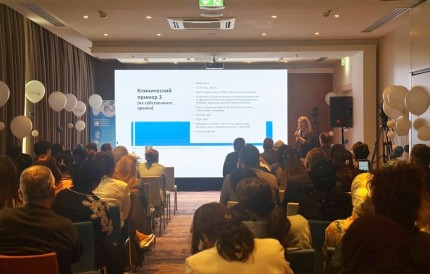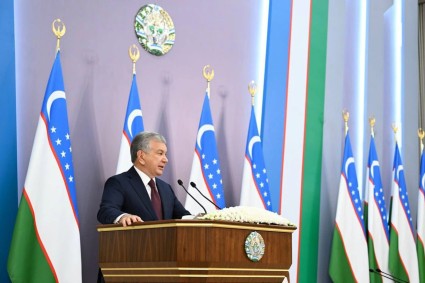Care for premature infants and newborns at risk for RSV infection was discussed at the scientific and practical seminar "Immunoprophylaxis of Respiratory Syncytial Virus Infection in Children," held in Tashkent on October 10 with the support of the international biopharmaceutical company AstraZeneca., with over 60 pediatricians and neonatologists from across Uzbekistan attending.
Experts addressed the challenges of premature infants, including the occurrence of severe respiratory complications in these patients. One of the key topics of the seminar was respiratory syncytial virus (RSV), which is particularly dangerous for children at risk—both premature babies and infants with bronchopulmonary dysplasia and congenital heart defects.
RSV can manifest as a common cold, but in these at-risk children, the virus often leads to serious complications. Severe cases often require hospitalization, supplemental oxygen therapy, and sometimes ventilation. 70% of children contract RSV infection in the first year of life, and virtually every child becomes infected within the first two years. Adults develop effective cellular immunological memory after infection, but they remain a reservoir of transmission. The main routes of infection are airborne droplets and contact. In most cases, RSV infection manifests as an upper respiratory tract infection—rhinitis, pharyngitis, and laryngitis.
The virus is one of the most common causes of acute lower respiratory tract infections in children worldwide. RSV causes over 3.6 million hospitalizations and approximately 100,000 deaths annually among children under five. Approximately 97% of RSV-related deaths occur in low- and middle-income countries, where access to supportive health care is limited.
Umida Feruzovna Nasirova, MD, Chief Neonatologist at the Ministry of Health of the Republic of Uzbekistan and Head of the Neonatology Department at the Center for the Prevention and Control of Children's Diseases, explained: "Severe RSV infection in the form of acute bronchiolitis often leads to respiratory failure in children at risk. In most cases, these patients require hospitalization, including intensive care units, as well as oxygen therapy or mechanical ventilation. Unfortunately, we also see that RSV can impact infant mortality. Given Uzbekistan's traditionally high birth rate, it is especially important to promptly protect and immunize newborns, especially those in high-risk groups, to minimize the loss of children's lives. This requires consistent training of physicians across the country and informing parents about available preventive measures."
The first and most common symptom of RSV infection is a cough, initially dry, but developing sputum after 3-4 days. Children also typically develop a runny nose (rhinitis) and inflammation of the throat and larynx (pharyngitis and laryngitis). Symptoms last from 5-7 days to 3 weeks.1,4 RSV is the most common cause of bronchiolitis in children under one year of age. In this case, the disease is usually severe. With RSV bronchiolitis, a child develops a fever, a runny nose, cough, wheezing, shortness of breath and rapid breathing, drowsiness or excitability, cyanosis of the skin and mucous membranes, and loss of appetite. Respiratory arrest may occur. Bronchiolitis requires immediate medical attention.1
About AstraZeneca
AstraZeneca is an international biopharmaceutical company focused on the discovery, development, and commercialization of prescription medicines in therapeutic areas such as oncology, cardiology, nephrology and metabolism, respiratory and autoimmune diseases, and rare diseases. AstraZeneca is represented in more than 100 countries, and its innovative medicines are used by millions of patients worldwide. AstraZeneca is headquartered in Cambridge. For more information about AstraZeneca, visit astrazeneca.com.















